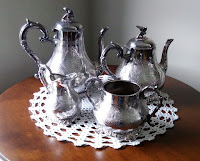52 Ancestors Week 1 - Start: Mary Ann (Grey) Edwards, my great great grandmother

It's summer in New Zealand; Christmas and New Year have flown by. As summer holidays are the start of our year, I thought about how I spent it as a child. Summer holidays always meant a day-long journey from Wellington to Tauranga in a stifling hot car along windy, dusty roads; trips to the Mount (Mount Maunganui, a popular surf beach) and Nana. Nana-in-Tauranga was the only grandparent I ever knew as she had been widowed just before my younger brother was born. My other grandparents were shadowy figures: Granny-in-Scotland and Grandpa. In the 1960s, communication was by aerogramme and my only contact was writing two letters a year to thank them for the postal note they sent at Christmas and for my birthday in June. Arriving at Nana's was tinged with both excitement and relief. Heading inside the back door on the left hand side, the first thing I always saw was a large portrait of a white haired lady. And to me, she was a lady! She was dressed in black with a high-necked wh...

